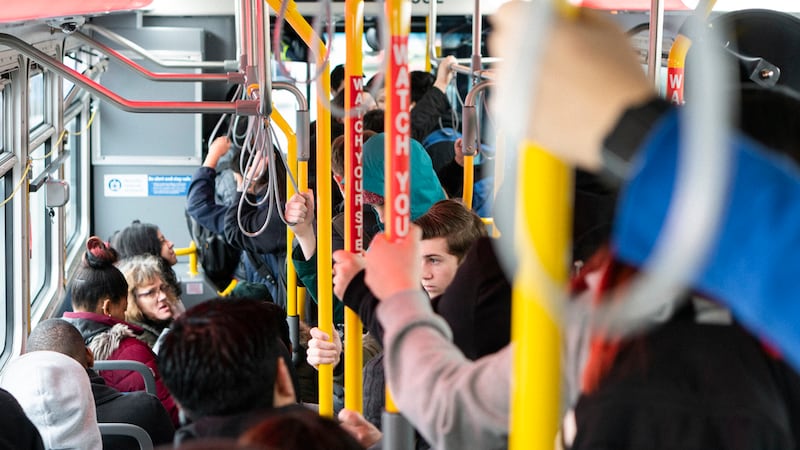In three weeks, Portland voters receive their ballots for the Aug. 11 special election to fill the seat of the late City Commissioner Nick Fish.
This week, we asked the two contenders, former Multnomah County Commissioner Loretta Smith and Dan Ryan, onetime executive director of the education nonprofit All Hands Raised, about Metro's plan to put a multibillion-dollar regional transportation package on the November ballot.
Two key business groups—Oregon Business & Industry and the Portland Business Alliance—warned this week that the proposed payroll tax would increase hiring costs for metro-area businesses at a time when they can least afford new expenses. (Neither group has taken an official position on the measure.) "When we're considering a payroll tax in the middle of huge layoffs, we have to pause," says PBA spokeswoman Amy Lewin.
Here's the question we asked Smith and Ryan:
Last week, the City Council adopted a resolution supporting Get Moving 2020, the Metro measure to raise billions of dollars for transportation improvements. Metro has suggested a payroll tax is the most likely mechanism for raising the money. Do you support Metro's transportation measure? If so, what about a payroll tax to pay for it?

Dan Ryan: "Working toward a system that promotes equity in an environmentally just and sustainable way is paramount. If you're Black, Indigenous or a person of color, it's likely your commute is longer than if you are white. Those commutes aren't always safe, either; in 2019, 49 people died in traffic incidents on Portland's streets. Moreover, transportation infrastructure is economic infrastructure, and these investments will ultimately support a healthier economy and lifestyle for everyone. However, given present circumstances, determining how we pay for such a system is critical. The COVID-19 pandemic has ripped a gaping hole in our economy, locally and around the globe.
"It's important to note that due to the limitations that exist on Metro's authority to levy taxes, a payroll tax is one of the only options available to them to raise the revenue needed for the measure. I think it's worth reevaluating our tax structure to look for ways to change this, but that doesn't change the situation as it stands. I would support a payroll tax that includes an exemption for small businesses and delays collection of the tax until the local economy has a chance to rebound from the current downturn."

Loretta Smith: "I am a strong supporter of the transportation bond measure as we are in desperate need of both improvements to aging transportation infrastructure throughout the region and investments in innovative, climate-friendly transportation options needed for a vibrant, healthy Portland of tomorrow. I am also thrilled about the opportunity to create a wide range of living-wage jobs that will benefit many vulnerable individuals and families throughout the region.
"I'm generally supportive of a new payroll tax being an option to fund the measure, but am also interested in how that could be coupled with other progressive tax mechanisms to make this effort a success. As we keep our eyes trained on equity, sustainability and safety, we must also keep equity at the center of both how we plan to fund the measure and exactly which communities will see the bulk of those financial investments. I am dead set against any regressive tax mechanisms that put more burden on Portlanders who are trying to make it through these tough economic times."
